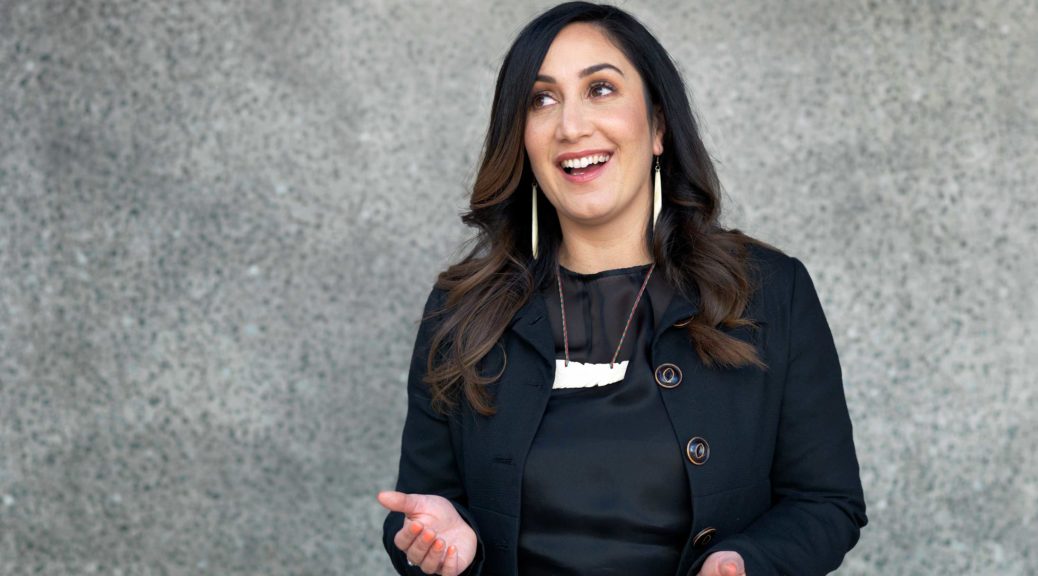DR PIKIHUIA POMARE
Te Rawara, Ngāpuhi, Ngāi te Rangi, Ngāti Pūkenga
Te Kura Hinengaro Tangata School of Psychology
What does mindfulness mean from a Māori perspective? Dr Pikihuia Pomare from the School of Psychology has been interviewing Māori to ask what practices they use to help bring about the state of being mindful, centred and present, and how they help themselves to relieve emotional distress and achieve better health and wellbeing. ‘What has come through strongly is that people have had to find their own strategies,’ she said. Creative dance, movement, kapa haka and waiata (cultural performance and song) feature, while others use rongoā (medicinal plants), or going to the moana (sea). ‘For me, it’s good because it shows that there’s a range of different pathways in which people can develop that skill within themselves. It was nice for them to be able to talk about their own creative ways in which they had developed these skills.’
Dr Pomare found that one of the major emphases was on the importance of whanaungatanga (relational wellbeing and connectedness), and this value underpinned many of the mindfulness and wellbeing practices. Contemporary ways of being creative with mātauranga Māori (Māori knowledge) in the current world also featured strongly, with people drawing on things that their tūpuna (ancestors) practised, but adapting them for the present day, such as using the Maramataka (traditional Māori lunar calendar), karakia (incantation/ prayer), rongoā, mirimiri (massage) and waiata. Te reo Māori came through as a strong theme for participants in the research.
‘I think there’s a lot of potential implications for how mindfulness might be delivered to Māori and otherindigenous populations in a number of different health and clinical settings, as well as everyday practices that people canuse to keep themselves well,’ she said, pointing out that individualistic, pathology-focused models do not work for Māori;more indigenous models are needed in practice. ‘This is often the criticism of Western reductionist models of mental health — that it’s all just focused on pathology and the individual without considering social harms and the broader system.’
Dr Pomare is also involved in a research project with a number of other Māori women in the School of Psychology to investigate interpretations of extraordinary experiences. ‘How do Māori interpret these anomalous experiences that could be explained as being wairua [spiritual experiences] from a Māori perspective? How can these inform and broaden our understanding of what is often pathologised, as in some cases of psychosis/schizophrenia? Our interpretation can make a huge difference, and if we have particular models of understanding extraordinary experiences that can help people to make sense of them, then hopefully it will make a big difference in terms of their distress.’
This research is also relevant to how Māori perspectives relate to the Diagnostic and Statistical Manual of Mental Disorders (DSM), a universal tool used by clinical psychologists to define and classify mental disorders. ‘This is really interesting because it’s challenging the DSM as a form of categorising phenomena which is coming out of a particular, very biomedical view. Out there in the world of practice, it’s seen as the bible, especially in the district health boards (DHBs), and it’s problematic for a lot of Māori. As a result, the approach tends to be to put people on medication, and nothing else is done. But because we have wairuatanga [spiritual experiences] and pūrākau [oral traditions/legends, extraordinary stories], which are everyday and normalised concepts within te ao Māori [the Māori world], it does leave a bit more room to explore things than the DSM does.’
Finally, Dr Pomare is involved in a project looking at youth mental health in a digital age. ‘There’s a lot of encouragement for people to use apps and digital technologies, but we don’t know how people use them, and if they are actually helpful,’ she said. ‘With mental health being in the spotlight lately, we’d like to understand that landscape a bit more, and to look at a range of views — from young people, app developers and health policy-makers. A lot of the statistics show that Māori don’t utilise mental health services even though there’s great need there, and so the appeal of things like apps and other online resources is important, because they are easy and accessible.
‘We know that there’s a burden of mental health for Māori and there are so many reasons why that is, but the next part is to try to make an impact and find strategies, skills and resources that can actually be helpful. Even though there’s huge need, there’s not a lot of Māori clinical psychologists or practitioners, but we are building, and particularly at Massey we’ve got a really strong presence of Māori academics. Sometimes it can be difficult when you’re faced with the realities of the negative statistics, but I can also see that there is a lot of really good work happening, and it’s exciting to be able to highlight indigenous psychology, which I think is really important in our country.’

